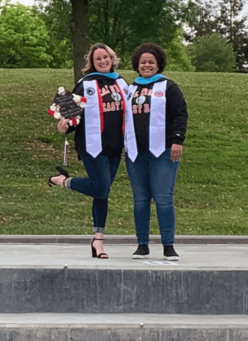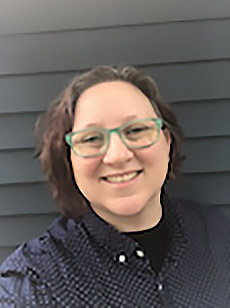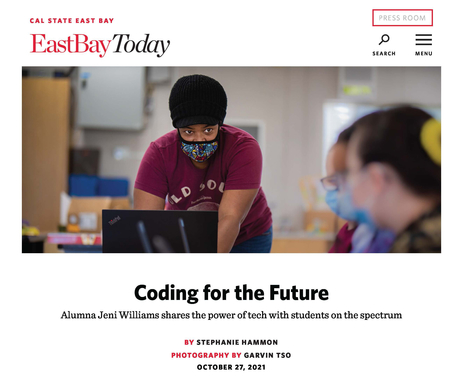About Project ASPIRE
Project ASPIRE (Autism Specialists Pioneering Inclusive Research-based Education) integrates evidence-based education and service learning to prepare ASPIRE Scholars to become autism specialists in speech-language pathology or specialized education settings. Project ASPIRE provides an opportunity to collaborate with scholars in the Education Specialist department. This interprofessional training experience will prepare scholars to grow their skills in interdisciplinary practice and learn how to work effectively together in early intervention and school settings. Project ASPIRE is funded by a grant provided by the US Department of Education Office of Special Education and Rehabilitative Services.
Being an ASPIRE Scholar
Classes/Curriculum
Scholars will all complete 4 seminars (One Saturday a month) focused on
a) Autism collaboration/interprofessional practice
b) Implementation science
c) Neurodiversity and student advocacy
Scholars will have opportunities to enact interprofessional skills through school-based internships.
Service Learning
All ASPIRE scholars will complete at least 40 hours of service learning in partnership with organizations that serve individuals with autism in the community and in providing transition support to older students with autism and other high support needs in post-secondary educational settings. These include parent advocacy organizations, centers for assistive technology, and community-based inclusive programs. Current scholars have volunteered with organizations such as Cal State East Bay's College Link Program,Think by the Bay, and Creativity Lab. As well as outside community organizations such as Friends of Children with Special Needs, Parents Helping Parents, Center for Accessible Technology, and others.
Scholarship
Scholars receive a $12,000 stipend for participation and $1000 support for professional development.
Service Obligations
Fulfill federally mandated service obligations upon grant completion. (Scholars must commit to spending at least 51% of their time performing work related to serving children with autism and their families for 2 years post-program completion)
Trainee Activities
Year 1 (2020-2021)
Increasing awareness in first responders about autism: An inclusive, experiential approach.
The events of the past year have brought renewed focus and attention to the challenges that many other minoritized and disadvantaged communities face in interactions with first responders and law enforcement. Currently, there are some commercial trainings available that focus on providing information about the signs of autism and strategies for communication with individuals with autism. However, these trainings were not developed in collaboration with individuals with autism and often lacked the lived experience of autistic individuals. The neurodiversity movement has sparked a plethora of studies utilizing participatory methodologies that include autistic individuals in the development, design, implementation, analysis, and dissemination of research related to autism. The purpose of our research is to increase awareness among first responders and social service providers about autism using a participatory based approach.
Grant scholars developed a survey about knowledge of autism among criminal justice majors to gather baseline data about knowledge of autism and the ways in which they would respond to individuals who communicated unconventionally in stressful situations. Scholars then, collaborated with autistic individuals to create an experiential training focused on understanding communication differences in autistic individuals and how to respond to them. Participating students completed post-training surveys. Results indicate that even a short one time training such as this can be extremely beneficial to increase awareness among future first responders and social service providers.
Click here to read article.
Paraeducators and Distance Learning
Project ASPIRE scholars participated in a literature search and research study examining the experiences of paraeducators (or Instructional Assistants) during the COVID-19 distance learning experience. Scholars conducted literature searches, participated in the development of the IRB, created the surveys, and developed the recruitment materials.
Sexuality Education Research Project
Project ASPIRE scholars participated in a literature search and research study development focused on sexuality education for individuals with ASD and other developmental disabilities. Scholars collaborated to conduct a literature search and review by locating existing studies in regard to sexuality education and ASD and DD. Scholars contributed to the literature table leading to a review of the literature. Scholars also collaborated on the development of study tools such as survey development and focus group facilitation guides.
 Read More about Kayleigh Fenstermacher
Read More about Kayleigh Fenstermacher





